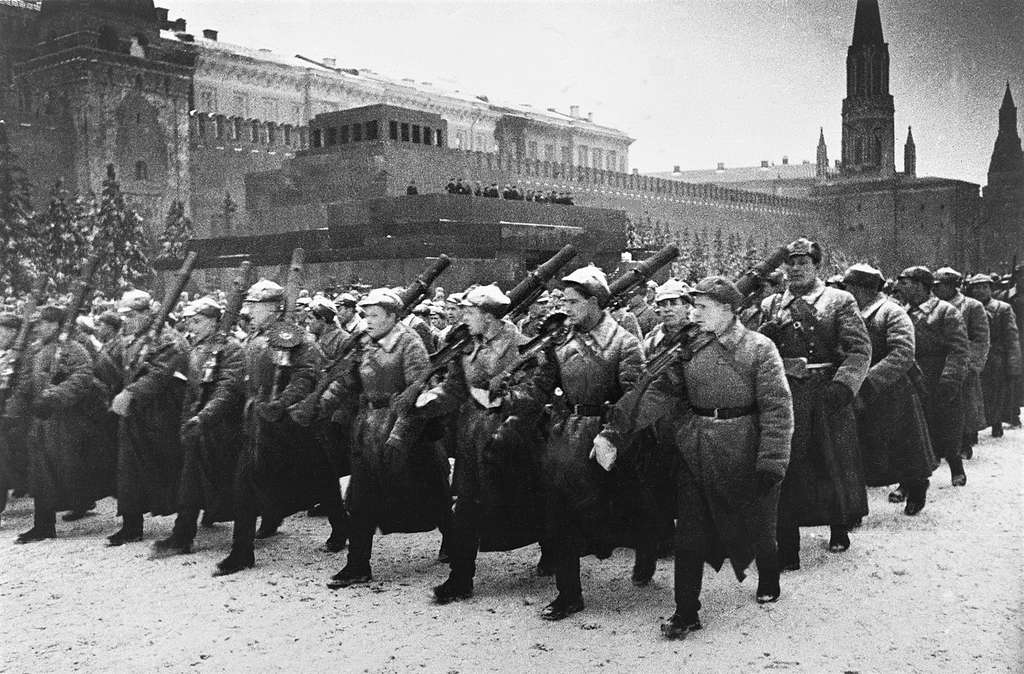In his June 6 New York Times column commemorating the 79th anniversary of the D-Day landing, Paul Krugman manages to regurgitate nearly every self-serving Western cliché about World War II. According to Krugman, “World War II was one of the few wars that was clearly a fight of good against evil.” It is safe to assume that the vast majority of Americans would agree with him, but his description is wildly inaccurate.
Unlike some analysts who confer sainthood on the Allied powers, Krugman at least concedes that “the good guys were by no means entirely good. Americans were still denied basic rights and occasionally massacred because of their skin color. Britain still ruled, sometimes brutally, over a vast colonial empire.” Strangely, though, he ignores the crucial point that the presence of the World War II Grand Alliance’s third member—Joseph Stalin’s Soviet Union—makes a mockery of the notion that the war was a clean, existential struggle between good and evil. Cato Institute scholar Gene Healy accurately notes that Stalin deserves to be the silver medalist in the twentieth century genocide Olympics.
When Joseph Stalin is a member of the “good side,” Krugman and other writers need to rethink their thesis. Later in the piece, he actually mentions the Soviet dictator’s brutal behavior in Ukraine during the 1930s, but he does so only to exonerate Ukrainians during World War II who initially supported Nazi Germany’s invasion and today’s Ukrainians who flirt with embracing Nazi symbols and values. Krugman does not concede that Stalin’s prominent role in World War II undermines the simplistic, good-versus-evil narrative of that war.
A more accurate description of that horrific global bloodbath was that it was a conflict between evil and an even greater evil. However, Krugman conspicuously fails to address any of the Allied war crimes committed during World War II. Yet it is impossible to excuse the behavior of British and American leaders who approved the saturation bombing campaign of urban population centers. The leaders who ordered the fire-bombing of Tokyo, killing an estimated 80,000 to 130,000 people, the massive bombing of Dresden during the closing weeks of the war, and the unleashing of nuclear mushroom clouds over Hiroshima and Nagasaki were not “good guys.” The victims of those attacks overwhelmingly were innocent civilians, not military personnel. Such conduct indisputably would be considered a war crime today, and it should have been regarded as one at the time.
However, American and other Western pundits seem to have a great problem portraying murky armed struggles as anything other than a fight between good and evil. That same simplistic narrative dominated the media treatment and public discussion of the Vietnam War, the two U.S.-led wars against Iraq, and Washington’s meddlesome policies regarding the civil wars in Libya and Syria.
Portraying World War II as a stark struggle between good and evil paves the way for Krugman’s real policy agenda. He contends that Ukraine’s anticipated military offensive is “the moral equivalent of D-Day” and describes their government as “an imperfect but real democracy, hoping to join the larger democratic community.” Conversely, “Vladimir Putin’s Russia is a malevolent actor, and friends of freedom everywhere have to hope that it will be thoroughly defeated.” There can be no “moral equivalence” between the two sides, he contends with certainty.
The reality is that Ukraine is far from being just an “imperfect democracy.” Volodymyr Zelensky presides over a corrupt and increasingly authoritarian regime. Human rights violations have become utterly commonplace. Just as U.S. leaders and their news media sycophants portrayed Washington’s showdowns with Hanoi, Belgrade, Baghdad, Tripoli, and Damascus as holy crusades against evil, the same playbook is being used with respect to the Russo-Ukrainian war. Krugman’s crude effort to shoehorn the power struggle between NATO (using Ukraine as a proxy) and Russia into his deceptive, idealized World War II moral framework serves that purpose.
A more detached, realistic examination of World War II would help inoculate the American people (and other Western audiences) against such attempts at manipulation. World War II was not a noble crusade waged by champions of freedom and democracy against the forces of unalloyed evil. The latter description of the fascist powers is accurate, but the glorification of the Allies is a grotesque distortion of reality.








